Capturing Complexity in Systems: Catamount April Reflections
Posted May 14, 2024 - Linh Bui and Cordelia Snowdon-Lawley
Sharing Our 2024 Catamount Research Reports.
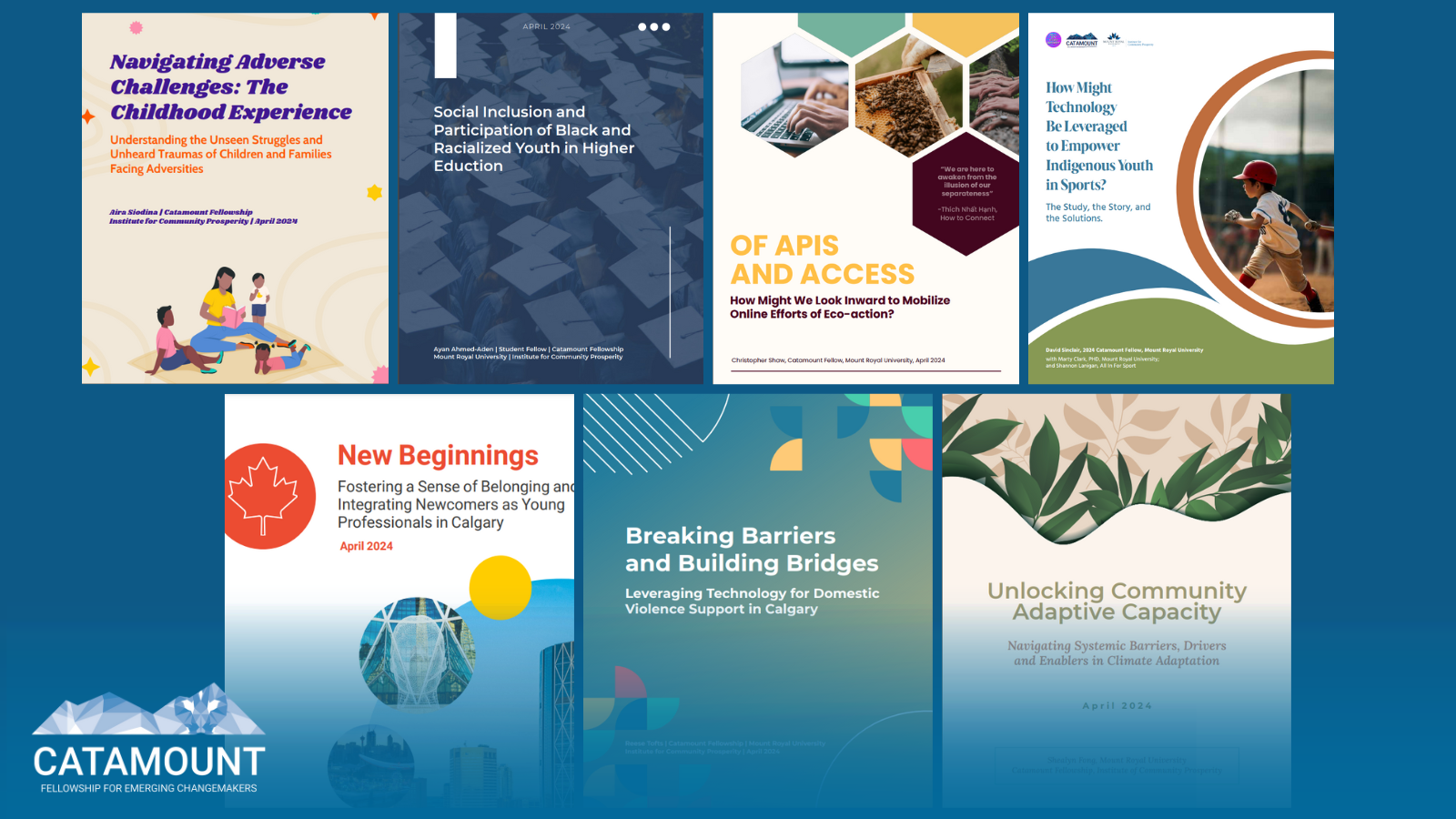
Image: Covers from the 2024 Cohort Scholarly Reports
Engaging with the Catamount Fellowship presents a unique opportunity to pursue research and introspection. While the Fellows scratch the surface of solutions in the systems they explore, the emphasis is on truly falling in love with and developing a deep respect for the problem and fostering a mindset of introspection. The launch of the Catamount scholarly reports presents an opportunity to explore how we use systems mapping tools to share knowledge and embrace the transformative journeys of next-generation changemakers.
Completing the scholarly outputs and seeing them presented publicly is a milestone moment for Catamount Fellows. This deliverable is the culmination of 8 months of research, exploration and inner work wrestling with the complexity of systemic issues impacting our communities.
We have curated highlights from some of the scholarly works below and we invite you to explore the reports on our 2023 Catamount Deliverables page.
Chris Shaw, a Cellular and Molecular Biology Student, focused on the question how might we turn online engagement into applied environmental action? With an online presence being “nearly mandatory” in our current context, the importance of leveraging online engagement in meaningful ways will only continue to increase. In preparing to share his learning with community, Shaw brought their personal passions and love of bees into their scholarly work.
Of Apis and Access: How might we look inward to mobilize online efforts of eco-action?, contains written and visual metaphors which helped both the author, and eventual readers, to understand the complexities of transforming an online presence into meaningful action. The Systems Hive (p. 3-4), builds on the concept of a bee hive, using the structural components to show that “just like a honeybee hive, the entrenchment of the social sphere in the online realm has many sweet bounties, as well as many devious detriments.”
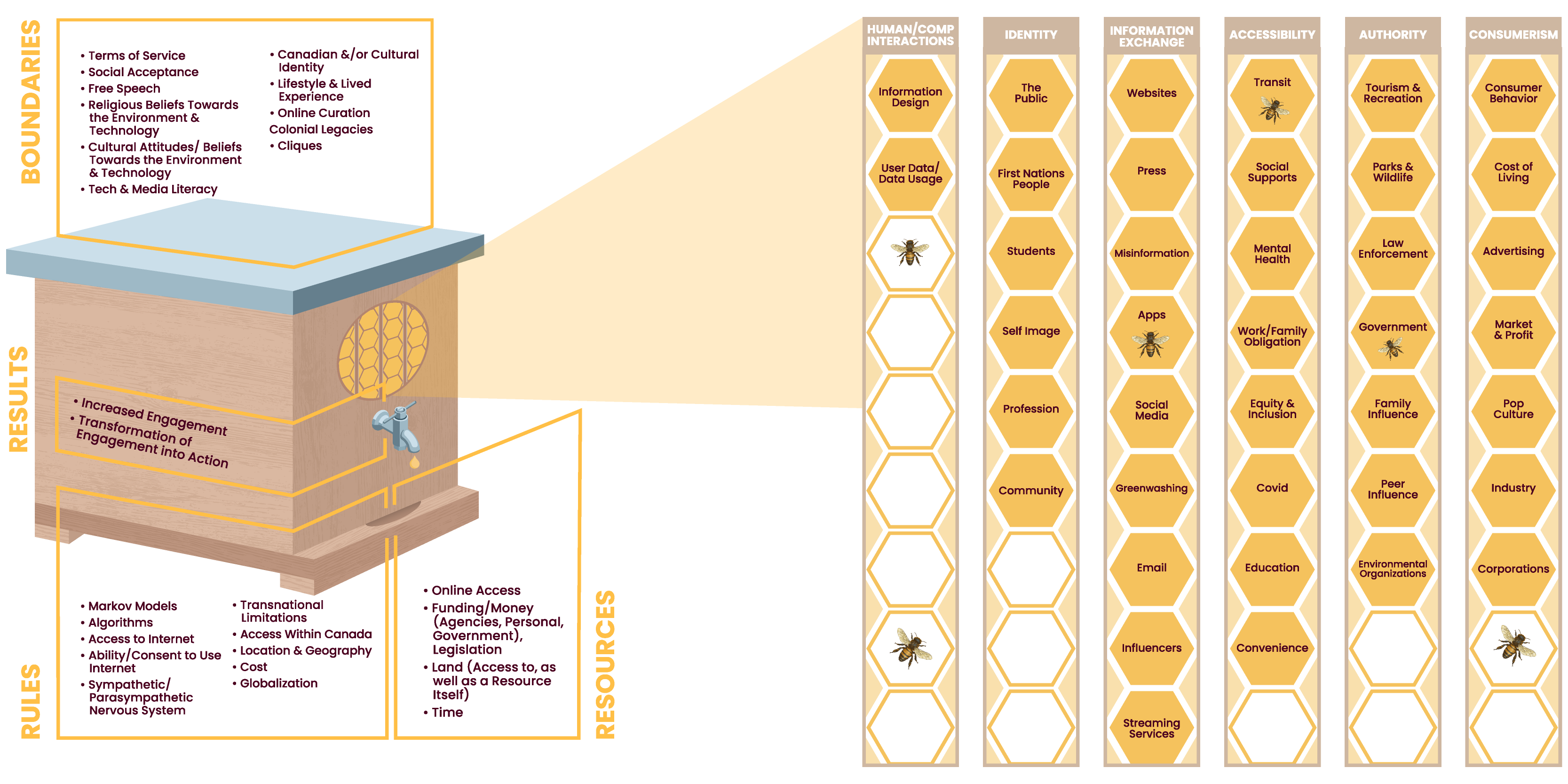
Image Description: Shaw’s Systems Hive capturing the many layers of complexity in online engagement.
Identifying and addressing the systemic barriers, drivers, and enablers to increase the adaptive capacity in the face of climate change was the focus of Shealyn Fong’s, a General Science student, Fellowship project. When she first approached the question, Fong felt overwhelmed. Climate change represents a realm of complexity and mapping the system visually helped her “see the formation of an entangled web, displaying how each aspect related to each other.” Her initial map also helped illuminate gaps that she could further pursue during the research process.
In her scholarly work, Unlocking Community Adaptive Capacity: Navigating Systemic Barriers, Drivers and Enablers in Climate Adaptation, Fong used a tree as the foundation for her systems map, capturing not only what is beneath the surface, but also how we might move forward into flourishing green futures.
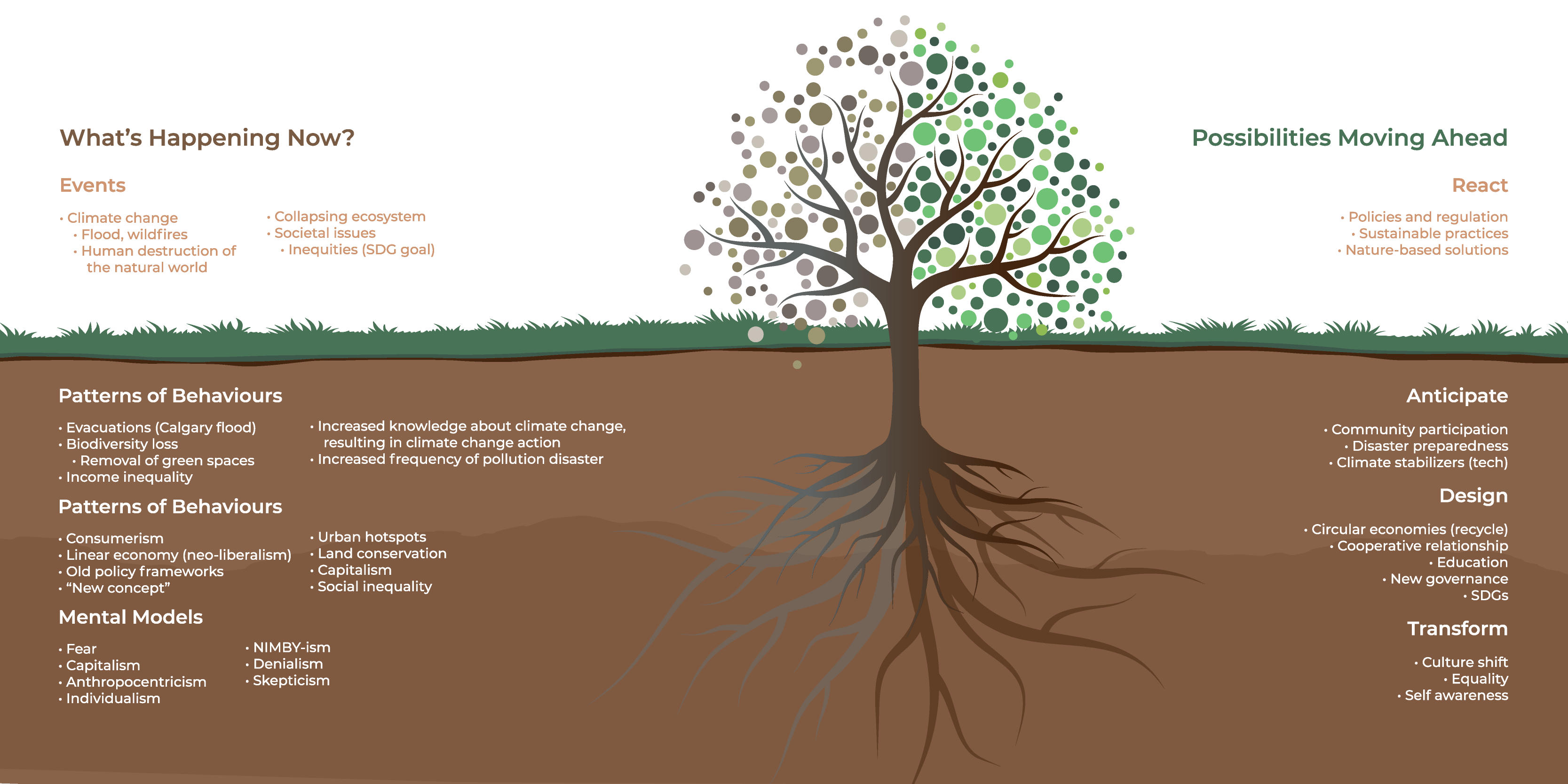
Image Description: A Tree Model Representing the Various Layers of Climate Change Adaptation. Adapted from the “Systems Change Tree” (Andres et al., 2023 as cited in Andres, 2024).
Reese Tofts, a Psychology student, took on the challenge of exploring how we might leverage technology to catalyze cross-sectoral collaboration to streamline service provision for families experiencing domestic violence. Toft’s journey in Catamount helped him truly see his own potential to be a changemaker and that “embracing curiosity as an emerging changemaker not only drives exploration, innovation, and learning, but it also propels us to seek new knowledge and understand the world around us.”
Digging into the ‘why’, guided by the 5 Why’s Toolkit, gave Toft’s a format to share their insights more broadly and make sense of such a deeply rooted issue. In his paper, Breaking Barriers & Building Bridges: Leveraging Technology for Domestic Violence Support in Calgary, Toft sought to understand why domestic violence is happening in Calgary and why people are being turned away from shelters.
With this model, there is a shift from describing what we see or our initial explanations, to uncovering the root causes including funding challenges, lack of collaboration, and barriers to breaking down silos.
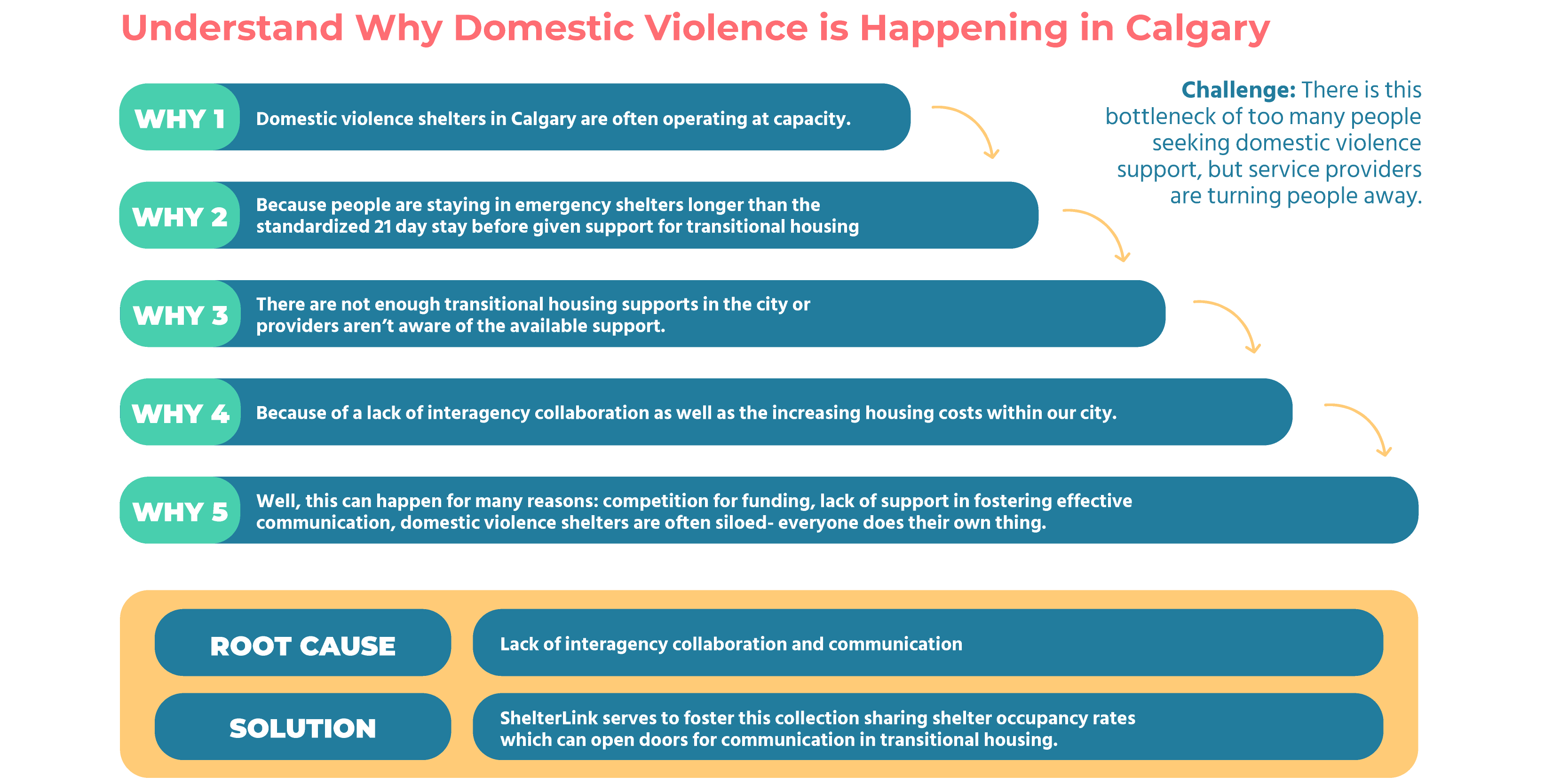
Image Description: Toft’s 5 Why’s Model Understanding Domestic Violence in Calgary
In her scholarly work, Navigating Adverse Challenges: The Childhood Experience, Aira Siodina, a Psychology student, sought to bring in visual elements from a playground to enhance her insights and bring in the playful aspects of rope bridges and seesaws in exploring systems challenges.
Siodina explored how families navigate adverse challenges and used the Ecological Model to capture the nested layers of systems that impact a child. The most important thing to note is that ultimately each child’s system will be unique so there “is no uniform approach when it comes to providing help and services for children and youth.”
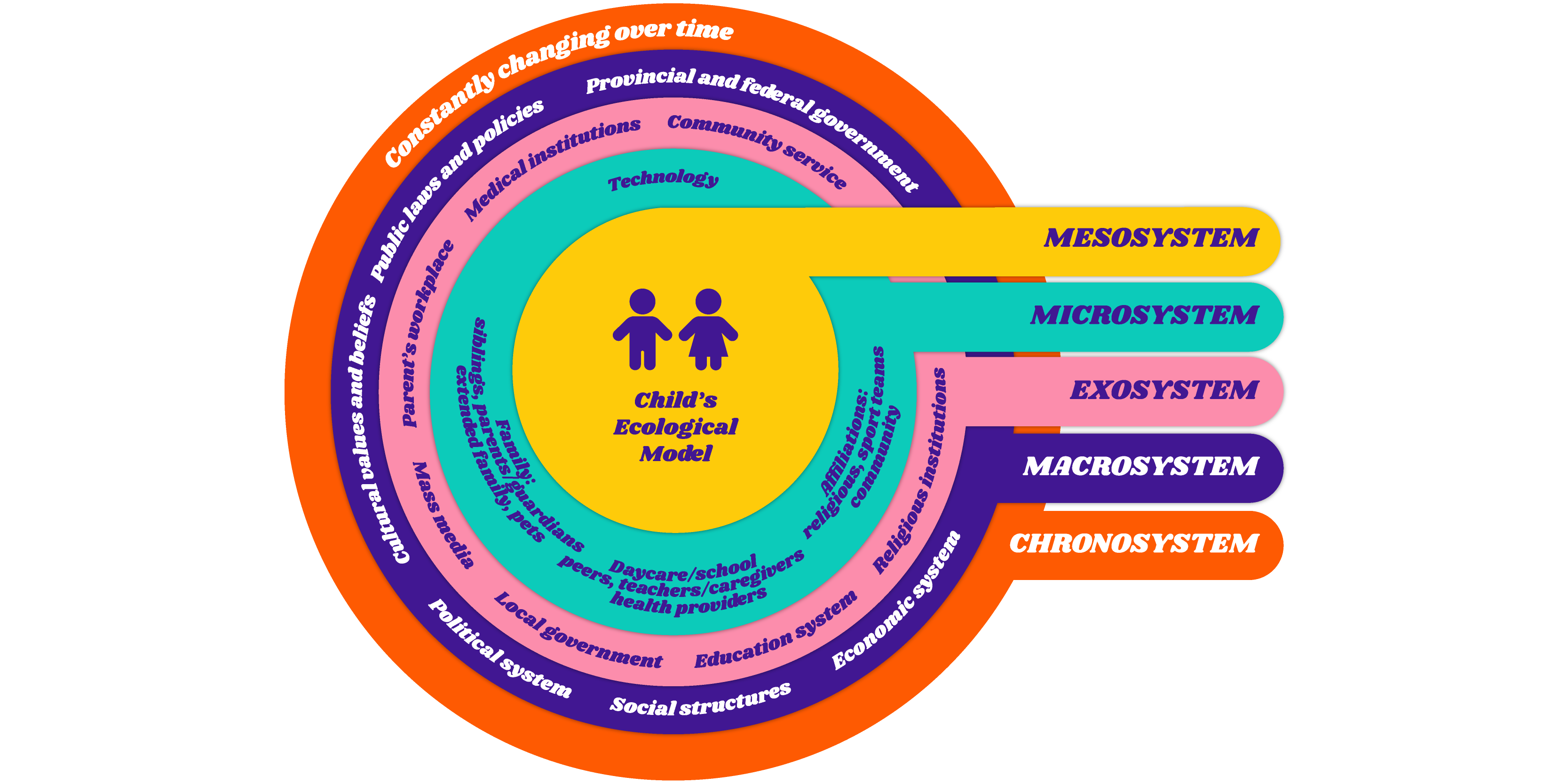
Image Description: Siodina's Adaptation of the Ecological Model
Visualizing complex information and relationships has offered each of our Fellows a new perspective on their issue, and a way to convey their learning to our broader community. We hope that engaging with these reports and the systems models within spark new insights and curiosities. Each report digs beneath the surface of a wicked problem and unveils challenges, opportunities, and hints at paths towards a brighter future.
Next Steps in the Catamount Fellowship
We have had the opportunity to work with five amazing cohorts of student fellows, community partners, and faculty mentors, and will be taking a pause for the 2024-2025 academic year to redesign the program based on feedback and the evolving needs of learners. We are excited to have the space to reconnect with our past participants, invite potential future collaborators to share insights, and create a new vision for Catamount for 2025-2026.
We extend our sincere gratitude to everyone who has made this program possible, notably the generous sponsorship by Suncor Energy Foundation, and look forward to continuing these partnerships in the future.
Current Mount Royal University students who are interested in our next offering of the Fellowship are invited to complete our 2025/2026 Expression of Interest Form, and subscribe to our newsletter to stay up to date about our program offerings.
Missed our Previous Recap? Check out the page Community Showcase and Creative Work Launch: Catamount March Reflections.
"Changemaker - a role that I never thought I would call myself. Being a changemaker entails a lot of responsibility, and I never thought I was that person to take on such role. However, through the fellowship, it makes me aspire to be a changemaker - to learn how to be one and to let go of the doubts I have.”
- Catamount Fellow, 2023


